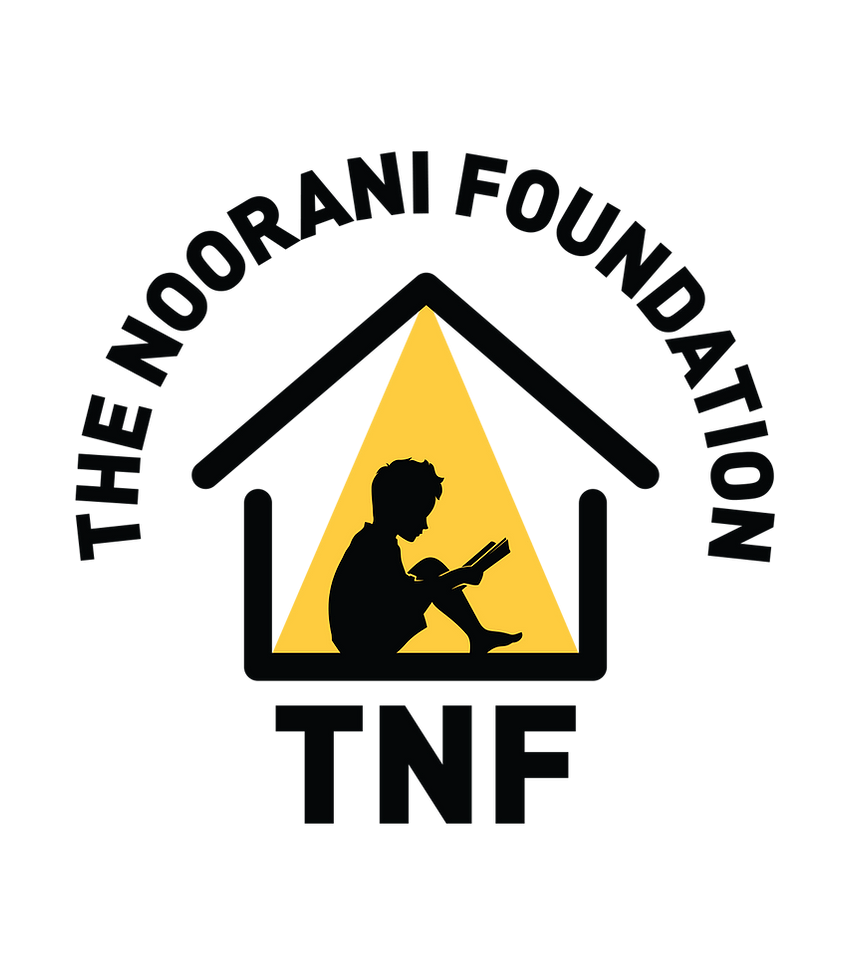TNF-AKHUWAT SCHOOL MODEL
- To look for small parcels of land (between 4 to 6 acres), preferably donated, and build self-sufficient residential schools including classrooms, laboratories, hostels, dining hall/kitchen, sports infrastructure and teacher/staff accommodation.
- The building design would be compact, self-sufficient and low cost, without compromising comfort, security and hygiene.
- Residential accommodation for staff is an integral part, to ensure round the clock supervision and ‘tarbiat’ of the students, being a residential school.
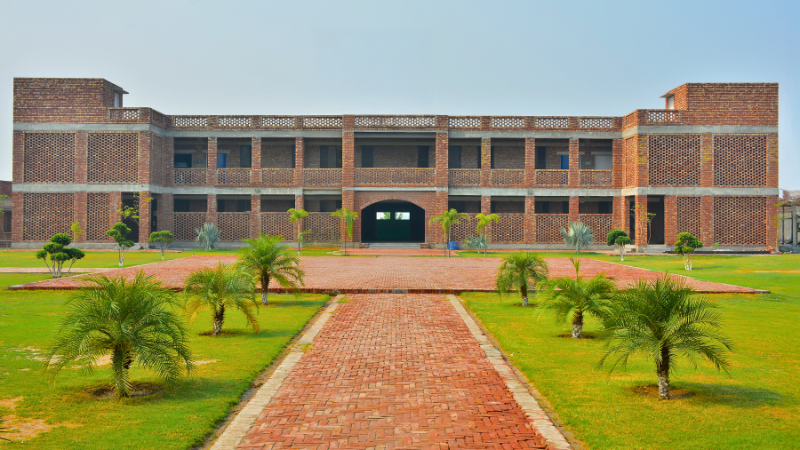
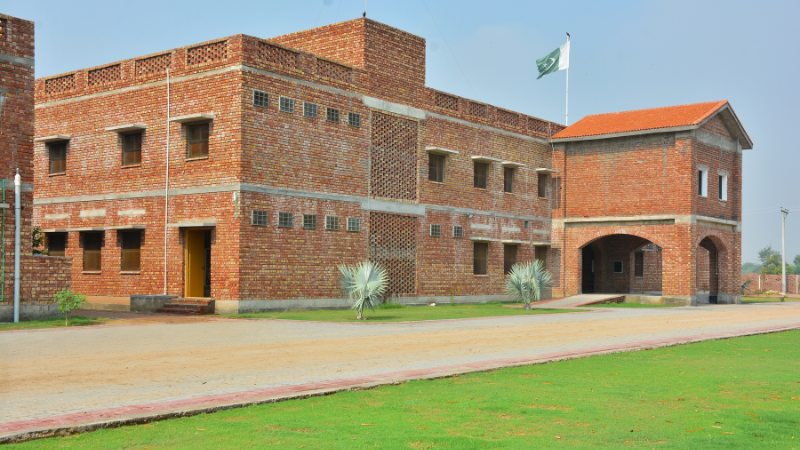
- TNF/Akhuwat schools will admit children starting from Grade 8 up to Grade 12 (Matric/Intermediate), providing a continuous five-year education designed to make a lasting impact. Religious education, sports, and Physical Training (PT) will be integral parts of the curriculum.
- State-of-the-art technology will be used for teaching, incorporating the internet, computers, and other modern educational tools.
- Efforts for vocational training shall be made in exceptional cases for students who are unable to continue their education further, ensuring some level of preparedness for employability.
SCHEDULE AND TIMETABLE - SUBJECT TO SEASONAL CHANGES
Staff Accommodation
security and hygiene
tarbiat
TNF/Akhuwat schools
internet/computers
Vocational training
CHARACTER DEVELOPMENT
To minimize costs and foster the value of self-reliance, students will be required to take responsibility for maintaining the school environment. A rotating schedule will ensure students are responsible for various essential tasks needed to support the entire student body.
These duties will include the upkeep of residential facilities, laundry services to ensure the cleanliness of attire and bed linens, and other ancillary tasks deemed necessary for the student’s holistic development. Alongside these duties, the TNF school system will incorporate farming practices to supplement food costs through the establishment of a vegetable garden. These self-sufficiency systems will be developed under the supervision of relevant specialists who will also be tasked with imparting these valuable skillsets to the students.
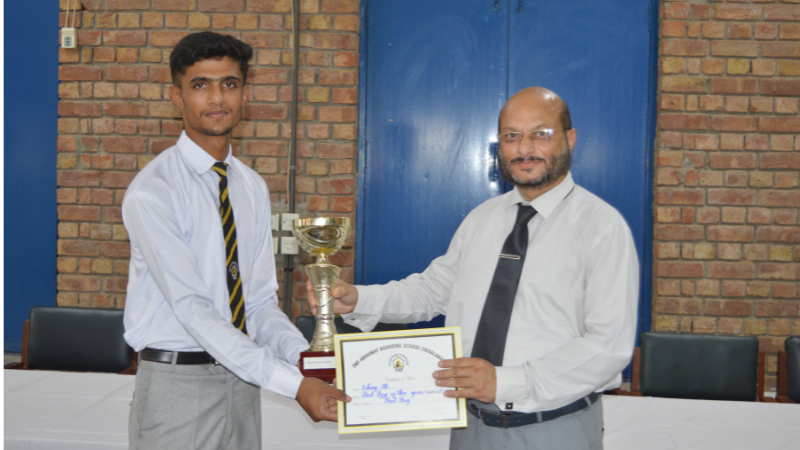
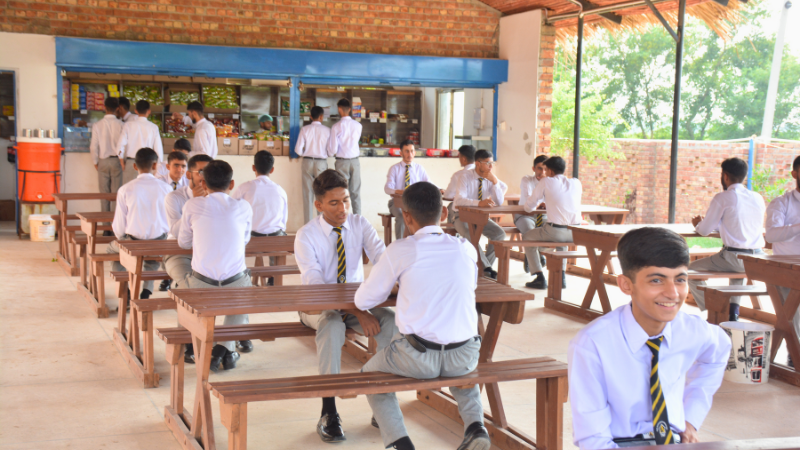
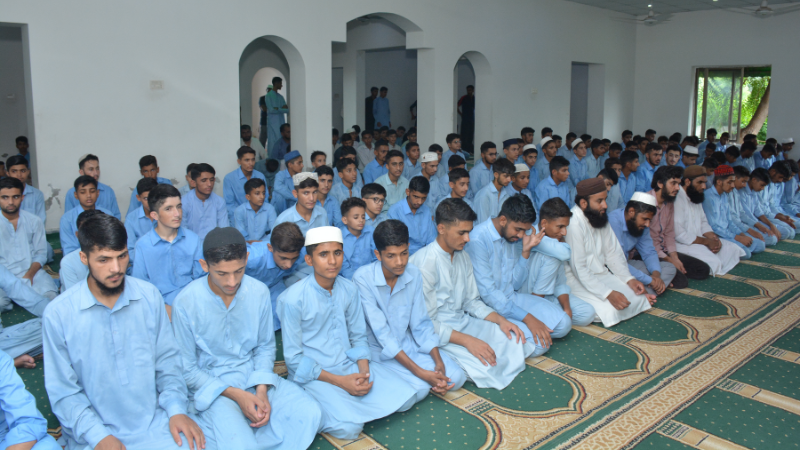
The fraternal bonds naturally formed in a boarding school environment will be actively fostered by the faculty through dedicated mentorship. These deep bonds will form the basis for an overall sense of belonging and collective responsibility among students. Through the nurturing of a strong sense of community, the TNF school system aims to inculcate an overarching sense of civic duty and national pride. By developing these sentiments within the student body, the system will create agents of change—individuals not solely focused on personal gain, but profoundly aware of and compelled to act in the collective interest of their communities. This ground-up approach to character development will transform the student into a self-reliant and capable individual equipped with the necessary skills and sense of purpose.
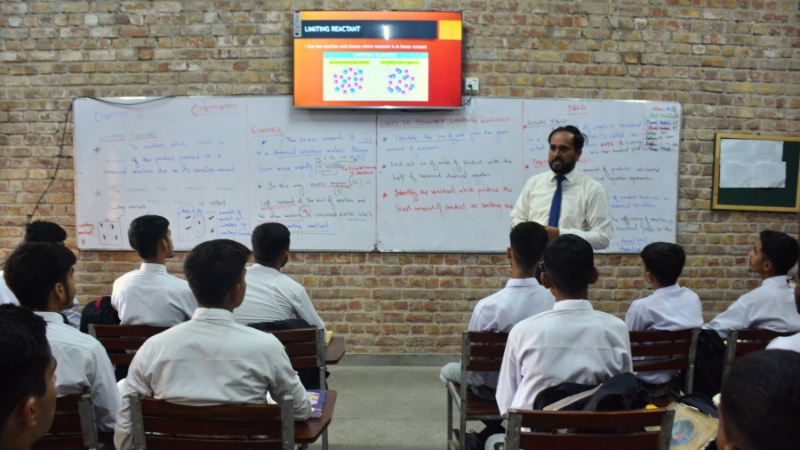
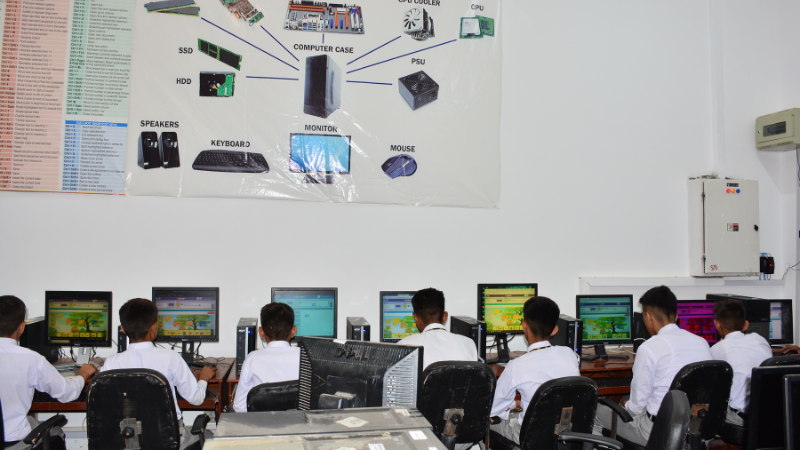
Education
The model is designed to educate 300 to 400 boys from Grade 8 through Grade 12 (Matric/Intermediate), with an entrance age ranging between 15 and 17 years. The core focus will be on academic development and a holistic education that includes religious instruction for all students. Acknowledging that not every student is inclined towards higher studies (post-Intermediate), the program will feature dedicated provisions for technical and vocational training to ensure foundational employability for those students
The required infrastructure for this training will be seamlessly integrated into the physical design of the institution. Furthermore, a unique opportunity exists to provide advanced computer skills and programming training for exceptional students, significantly enhancing their potential for future career growth.
INNOVATION
Innovative techniques to improve academic performance are not limited to means of instruction alone, as the curriculum can also be reformed to improve absorption and retention. The matriculation curriculum, as determined by the School Education Department (SED) of Punjab, although comprehensive in nature, provides opportunity to improve or strengthen the knowledge base of the student by providing practical application and case study review. Such a model is most notably used by the International Baccalaureate (IB) model and has met with much success world over.

By grounding the learning outcomes of the student in real life application, the student has the means and foresight to understand the value of his instruction. The development of such faculties within the student will ensure not only academic performance, but an improved skillset when entering into formal employment. sorption into Pakistan’s emerging ICT sector.

Faculty Training and Recruitment
The main emphasis must be on the induction of quality teachers through fair compensation packages and adequate housing facilities. The first preference must be given to the recruitment of locally based teaching staff to lower the cost of employment. Teacher training will be an intended part of the program. Most of the teachers will be expected to stay in school for which accommodation will be provided. Teacher training module will be rigorous, comprehensive and competitive to ensure a high standard of educational service provision within the proposed system.
Through active effort by the management, teaching capacity of the staff will be upgraded throughout their tenure of employment. It is widely accepted that the soft infrastructural provisions of any educational institution set the basis for success of the students. Therefore, it is the primary objective of the model to promote a well-designed and well-executed curriculum, through good teaching.
Environment
The school’s design intentionally minimizes the use of high-class amenities or plush living spaces, as they are not a priority. To facilitate rapid replicability and maintain low operational costs, the infrastructure will utilize features that are not high-end, such as relying on natural ventilation in classrooms and dormitories. Bathing areas will be collective, and a communal tube well area may be featured, accessible during scheduled time-slots. Furthermore, dormitory and classroom spaces will be designed using traditional building practices to specifically cater to the local climate. This infrastructure philosophy serves a dual objective: to keep costs low and to ensure the student remains grounded in the realities of their community.
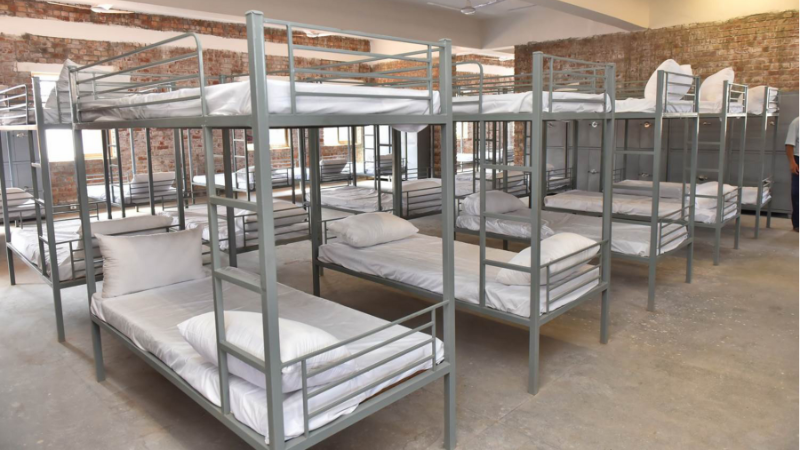
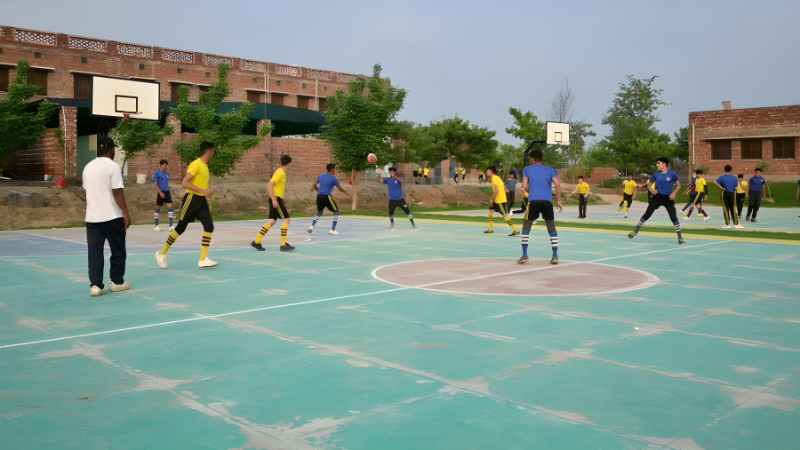
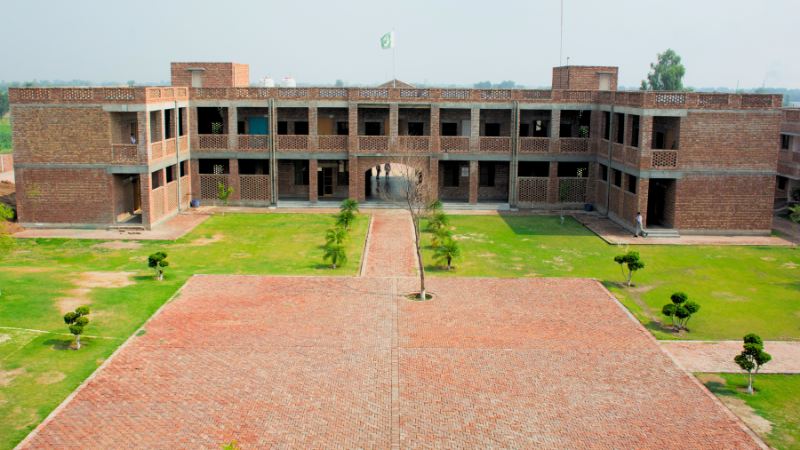
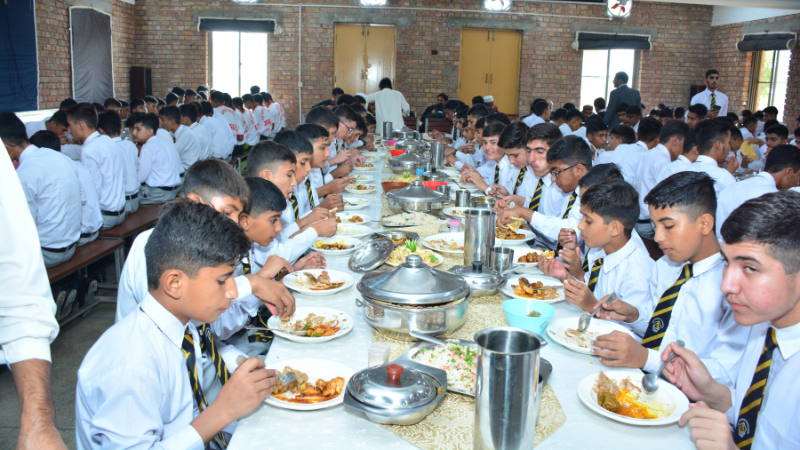
This continuity between the school and home is crucial for the student’s psychological well-being, as they will not feel isolated or inadequate in either environment.
This approach stands in deliberate contrast to the “officer” mindset prevalent elsewhere, which often ties a student’s self-respect to economic status; instead, this environment, combined with character development initiatives, will mold the student to possess high self-regard, thereby promoting strong psychological well-being.
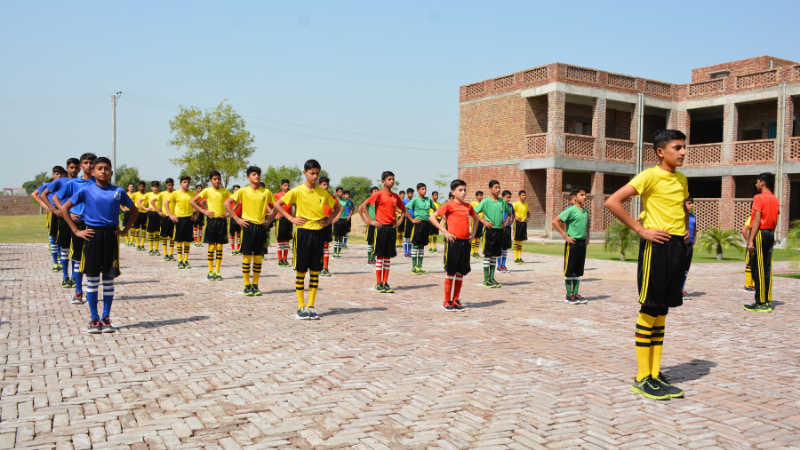
Physical Training
The physical development of each student will be a fundamental feature in the comprehensive education scheme of TNF Schools. A healthy body hosts a healthy and able mind. To this end the school will employ a rigorous training regime to promote physical fitness. The regime will include sports of preference of the staff and students for which grounds and basic infrastructure will be provided.
As the stay of the student in the TNF Schools will coincide with the onset of puberty, sports and physical training will set the base of each student for a life time. The benefits of a healthy physical form include an increase in energy, a greater ability to concentrate and an overall increase in immunity.
Schedule
In order to optimize the time available and to provide a healthy and productive routine, the school day will follow a carefully curated schedule. The school day will start at 5:30 am after morning prayers. After a 30-minute period to dress and prepare, the students will start their day with physical exercise. Thereafter they will bathe, dress, have breakfast and prepare for the day. and get to class by 8:00am.
With a short recess at 11:00am they will go for lunch and prayers at 1:00pm. After a two-hour break they will get back to class for an hour and half and at 4:30 pm they will go for two hours of sports and an hour to change and go for dinner at 7:30 pm.
Dinner will be followed by another one and a half hour of class and then bed time.

The objective of the proposed schedule is to get the student used to diligence, hard-work and a well-disciplined life regime. While the long hours spent in the classroom will enable him to expand the learning time available to him, the compulsory time spent on the playing field will relax him and keep him healthy apart from the character-building advantage of sports.
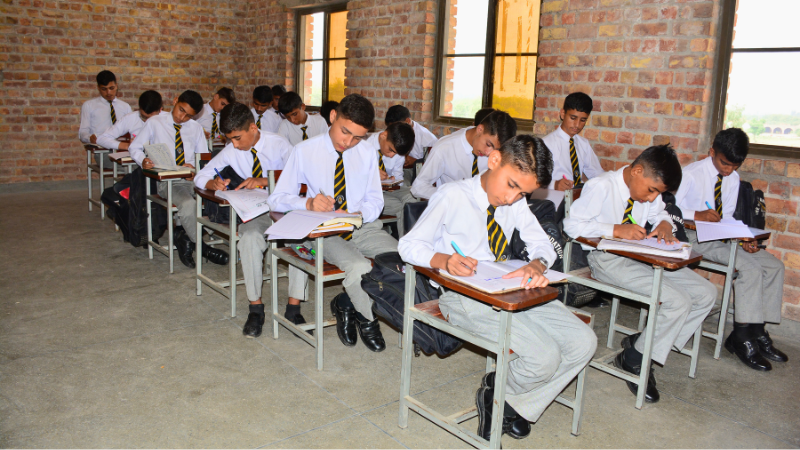
AFTER CLASS REVISION SESSIONS
An integrated advantage of boarding schools is the optimum use of time both for physical and mental development. After school hours, setting aside adequate time for sports, prayers and leisure will be used for continued class work in the evening, to revise lessons or as decided by the academic team.
